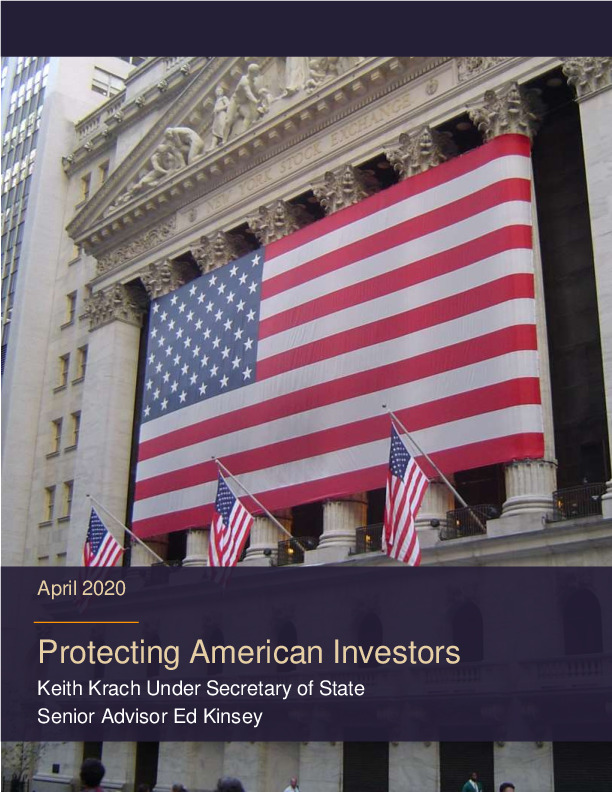Keith Krach and Gen. Stanley McChrystal on safeguarding global innovation
The Washington Post
With 5G technology and quantum computing to artificial intelligence and energy infrastructure, how can the United States embrace the latest global technologies while safeguarding our national security? Veteran Silicon Valley CEO and former undersecretary of state Keith Krach and retired four-star Gen. Stanley McChrystal, former U.S. and International Security Assistance Forces(ISAF) commander, join Washington Post columnist David Ignatius to explore how the U.S. and its strategic partners can build a global cyber-trust network to protect the innovation of tomorrow.
Subscribe to The Washington Post: https://wapo.st/2QOdcqK
About Washington Post:
Washington Post Live is the newsroom’s live journalism platform, featuring interviews with top-level government officials, business leaders, cultural influencers and emerging voices on the most pressing issues driving the news cycle nationally and across the globe.
About Keith Krach:
Keith Krach is an American businessman, former diplomat and economist. He is the former chairman and CEO of DocuSign, co-founder of Ariba and the youngest-ever Vice President of General Motors. As Under Secretary of State, Krach led American economic diplomacy and had the rare distinction of being unanimously confirmed by the U.S. Senate. For his work blocking the Chinese Communist Party’s attempts to infiltrate global 5G communications; his advocacy for the people of Taiwan; and for his work addressing the plight of the Uyghur minority suffering under oppression and genocide in China, Krach has been nominated for the 2022 Nobel Peace Prize.
Follow Keith – #keithkrach
Twitter: https://twitter.com/KeithJKrach
Facebook: https://www.facebook.com/keithkrach
LinkedIn: https://www.linkedin.com/in/keithkrach/
Website: https://keithkrach.com/
Related Posts

video
$2 Trillion Invested in Chinese Companies, but US Investors Have No Visibility or Control
The Variable Interest Entity structure enables Chinese companies to sell US investors shares in Cayman Island shell companies. Investors have no visibility or control over the real companies located in China.

document
Protecting American Investors — Chinese Stocks on U.S. Stock Exchanges
The road to security regulation internationalization was based on the principle that all sellers played by the same rules. The continuing emergence of Chinese state owned enterprises on the American based New York and NASDAQ exchanges is stacking the deck against American companies and intensifying the risks that investors are taking.
